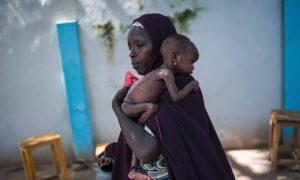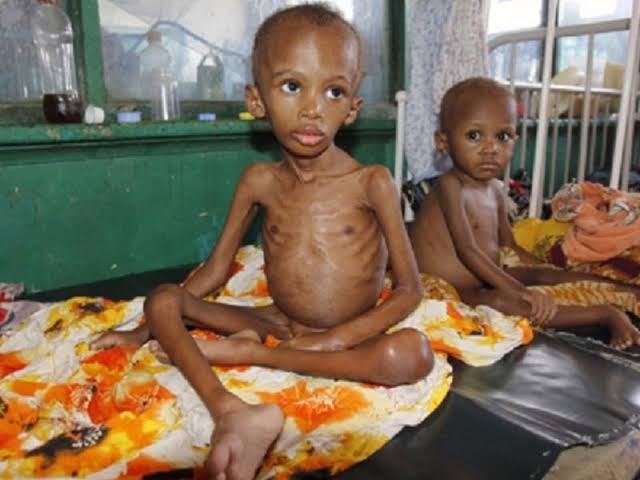The United Nations Children’s Fund (UNICEF) has issued a dire warning about Nigeria’s growing malnutrition crisis.
On Tuesday, July 22, 2025, the agency revealed that 3.5 million children are currently suffering from severe acute malnutrition, with over 400,000 children at risk of preventable death within the next 38 days if critical nutrition supplies run out.

UNICEF Nigeria’s Chief of Field Operations and Emergencies, Judith Leveille, raised the alarm during a joint press briefing in Abuja.
The briefing focused on the nutrition emergency in the North-East and North-West and the European Union’s support for victims of the Yelewata crisis in Benue State.
According to Leveille, Nigeria will face a complete stockout of essential therapeutic nutrition supplies by September 1, if no intervention occurs.

“We have one month and eight days to prevent the deaths of over 400,000 children,” she said. “Among them could be Nigeria’s next Nobel Laureate or a future innovator. We must act now.”
Leveille highlighted the role of ready-to-use therapeutic food (RUTF) in treating malnourished children and urged all stakeholders to step in immediately to avoid catastrophe.
In fact, she described visits to stabilisation centres where medical teams worked tirelessly to save malnourished children like Memunah and Aisha.
Despite their efforts, she noted that these centres have already reached maximum capacity.
Moreover, “We haven’t even hit the peak of the lean season,” she warned, explaining that things will likely get worse over the next month.
Camilla Higgins, Director of the Nigeria INGO Forum, supported the call for immediate action.
She described the scale of the crisis using stark imagery. “Imagine filling Abuja National Stadium 60 times. That’s the number of children currently battling severe acute malnutrition.”
Higgins stressed that international donor cuts, especially from the United States, have weakened the humanitarian response.
Consequently, “Admissions in nutrition centres have surged by up to 73% in some areas.
Even adults now show signs of malnutrition,” she said.
She urged the Nigerian government to lead the response and coordinate effectively with international partners.
Therefore, “We’re ready to help, but the state must lead,” Higgins said.
Bilal Ahmad, Head of Mission for Médecins Sans Frontières (MSF), painted a grim picture from Sokoto State, where medical teams are struggling to cope.
“We started the rainy season with 60 planned beds. Now we’re at 120, and demand is still rising,” he said.
Meanwhile, “In Katsina, we had to double our bed space from 450 to 900. Children are arriving too late and in critical condition.”
Ahmad reported mortality rates ranging from 3.7% to 7.7% across various regions.
Notably, he warned that many of these deaths could be prevented with immediate support.
He called for more treatment centres, increased access to therapeutic food, and better infrastructure to reach underserved areas.
The humanitarian community has raised its voice. As a result, it’s now up to Nigeria’s leadership and global partners to respond before more lives are lost.







